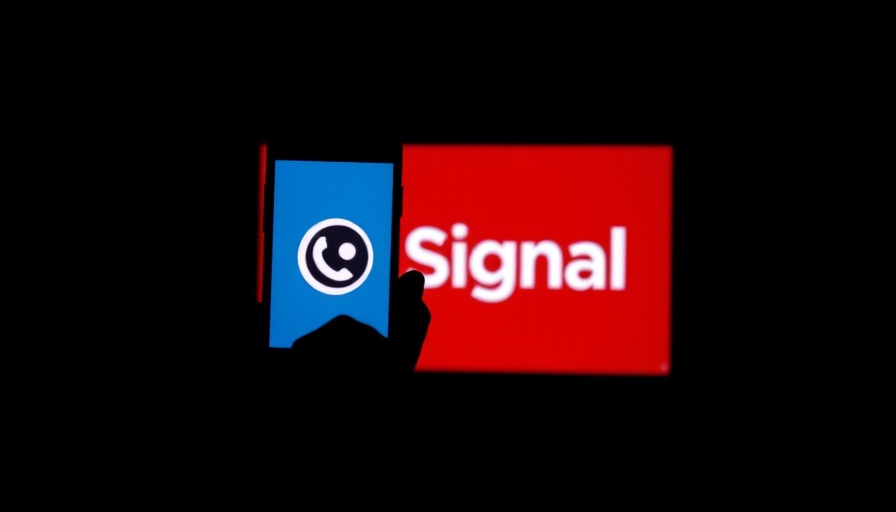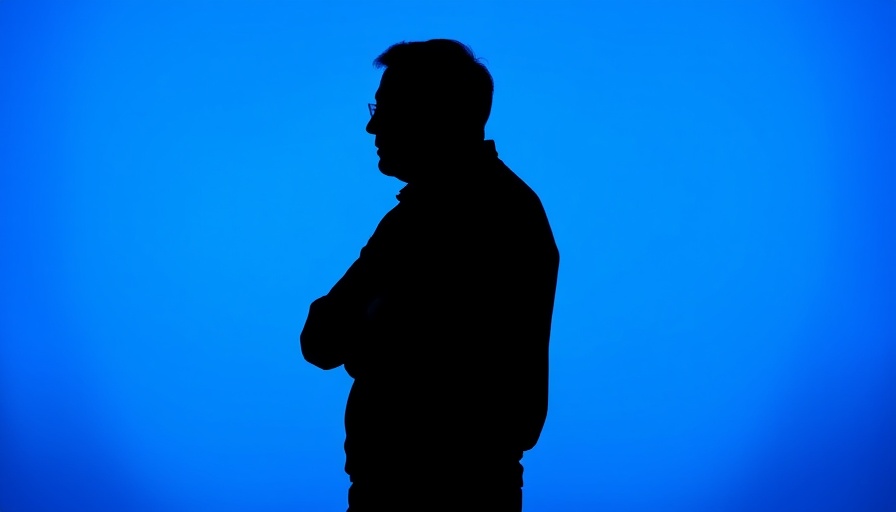
Signal's Surge: Understanding the Phenomenon in the Netherlands
In 2025, Signal has emerged as the number-one downloaded app in the Netherlands, a trend that has caught the attention of tech enthusiasts and market analysts alike. This surge is not merely a coincidence but reflects deep-rooted shifts in consumer behavior towards digital privacy. With Signal's reputation as a privacy-centric messaging platform, this uptick arises amid growing distrust towards major tech companies for their data handling practices.
Privacy Awareness Drives Adoption
While there are myriad reasons behind Signal's rise, one pivotal factor is an increasing awareness of privacy. As observed by Signal's president Meredith Whittaker, the Netherlands has experienced a monumental 25-fold increase in new registrations this year compared to past years. "People are beginning to realize how vulnerable digital communication can be," Whittaker noted, highlighting a landscape marked by heightened scrutiny of big tech.
A Unique Local Context: The Dutch Experience
The Dutch are not strangers to discussions around digital privacy. In recent months, heightened political tensions and global events, particularly concerning the U.S. tech landscape, have pushed citizens to reconsider their digital dependencies. Rejo Zenger, a senior policy advisor at Bits of Freedom, underscores this shift, stating that Dutch users are now debating not only which messaging app to use, but are also increasingly questioning their reliance on American tech infrastructures. This reflects a broader European sentiment that prioritizes data protection.
Comparative Growth: Signal vs. Its Rivals
The growth trajectory of Signal is particularly remarkable when viewed against other European markets. Since December, Signal downloads have swelled from around 22,000 to 233,000 in February—an astonishing 958% increase. Meanwhile, neighboring countries like Belgium and Sweden have seen far lesser growth percentages of 250% and 153% respectively. This stark contrast prompts analysts to consider what makes the Netherlands a unique environment for such 'mass adoption moments'.
Media Influence and Public Perception
The media has played a significant role in shifting public opinion. With major events like the reelection of Donald Trump highlighting issues of data privacy, the conversation around big tech's influence has proliferated in Dutch media. Vincent Böhre from Privacy First pointed out a notable paradigm shift; even those who were previously indifferent to privacy concerns are now actively seeking alternatives like Signal. This cultural shift showcasing a growing distrust of platforms like Meta has bolstered Signal's reputation as a viable, privacy-friendly option.
The Future of Privacy-Centric Apps in Europe
The implications of Signal's rise in the Netherlands may foreshadow a larger trend across Europe. As governments grapple with tech giants' dominance, it is essential for privacy-focused apps to not only capture user interest but also offer solutions that resonate with the demands for greater data protection. Signal's staunch commitment to maintaining robust privacy measures without compromise positions it favorably in a competitive market.
The journey of Signal in the Netherlands serves as a case study for other regions. As more consumers become aware of their digital rights and the risks of mass surveillance, platforms emphasizing user-centric practices will attract attention. In the era of digital privacy, the question remains — can Signal’s model pave the way for a new standard?
In conclusion, the notable adoption rates of Signal in the Netherlands illustrate an essential turning point in how individuals prioritize digital safety. Business leaders, particularly in tech and marketing sectors, should pay close attention to these trends. Recognizing the public's shift towards privacy could be vital in shaping future strategies.
 Add Row
Add Row  Add
Add 




 Add Row
Add Row  Add
Add 

Write A Comment